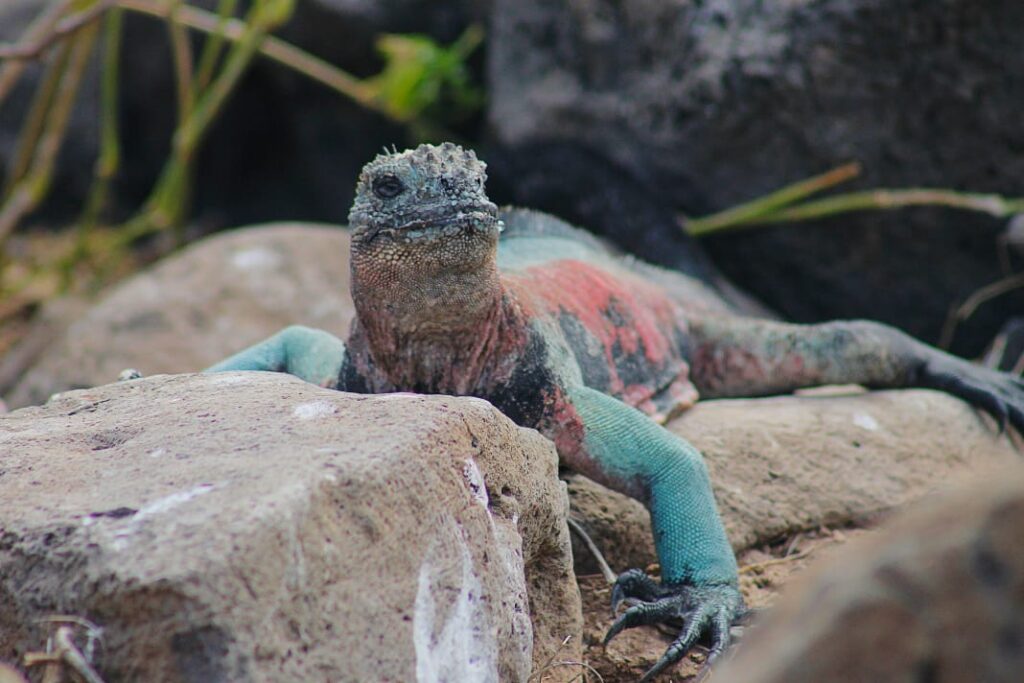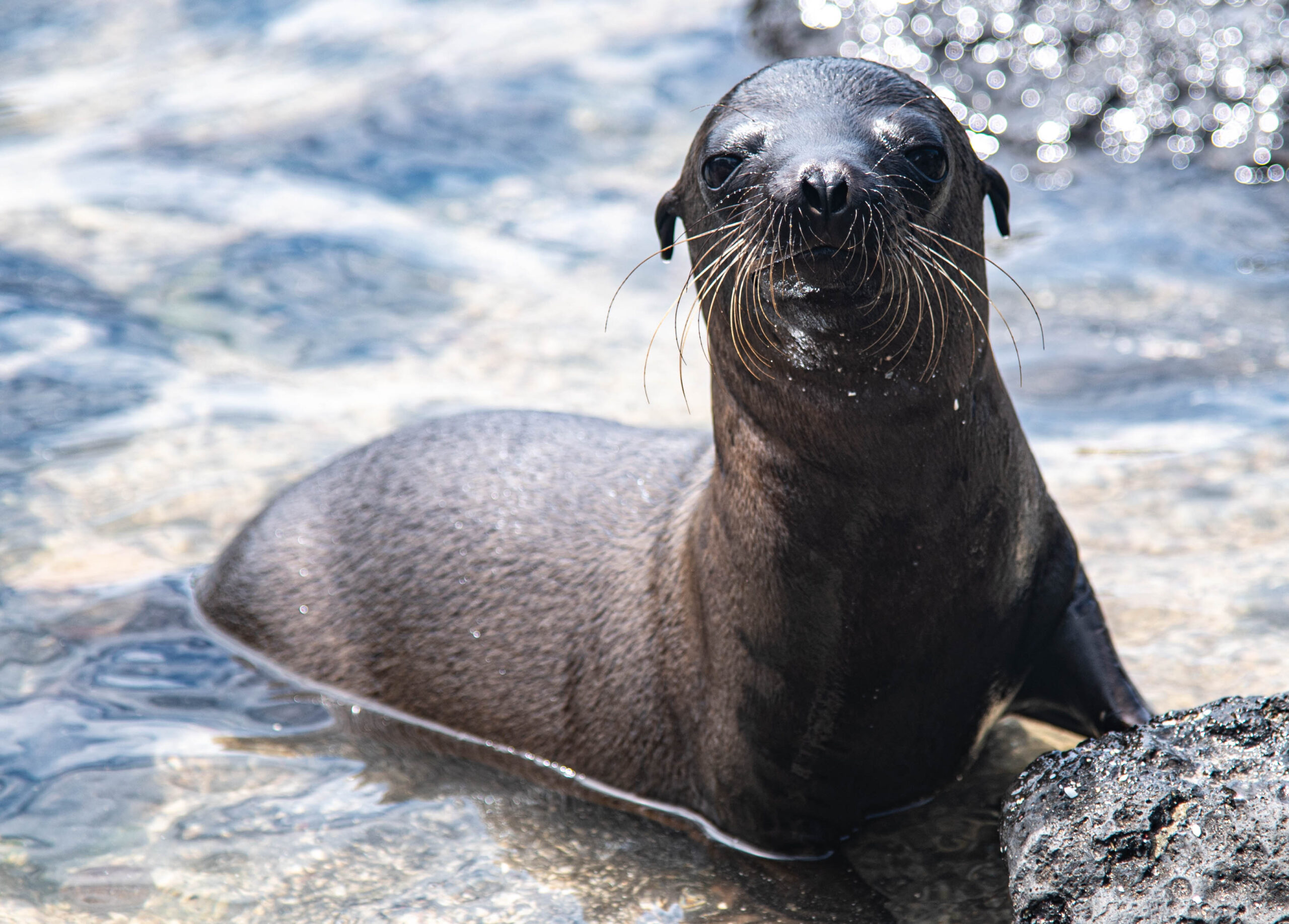Our entire team at the Galapagos Science Center (GSC) would like to wish you a very happy and prosperous New Year! We are proud to share with you a compilation of the meaningful work carried out during 2022 and hope you enjoy learning more about our projects aimed to benefit the Galapagos Islands and world science.

1. The Galapagos Science Center Hosts the World Summit on Island Sustainability

The World Summit on Island Sustainability was held from June 26-30, 2022 in San Cristobal, Galapagos, to celebrate the 10th Anniversary of the Galapagos Science Center and brought together voices from around the world to discuss challenges to island conservation and ways to ensure healthy island ecosystems for future generations. Learn more about this impressive event in this article and immerse yourself in the Summit by watching this comprehensive video!
2. Team of researchers from Galapagos Science Center and Galapagos National Park seek to protect marine biodiversity and understand climate variability through marine expedition

12 researchers from USFQ, UNC, and DPNG, along with 8 crew members of the iconic vessel Sierra Negra, traveled for 16 days to a total of 14 islands and 30 specific sites, distributed around the Galápagos Marine Reserve. The information obtained will be used to understand the health status of the bioindicator species of the ecosystem in Galapagos, in order to assess the effects of climate change. Learn about the history, objectives, methodologies, and preliminary results here.
3. Cetacea Galapagos Program & Citizen Science Making Strides

In the fall of 2021, Dani Alarcón, a researcher from the Galapagos Science Center, and Hector Guzman, senior scientist from the Smithsonian Tropical Research Institute, first set out to tag blue whales off the coast of the Galapagos Islands. After many years of searching for and registering cetaceans in the Galapagos, Dani and her team of researchers alongside citizen scientists are compiling data that shed light on how these species are using the Galapagos waters. Learn more in the following video.
4. Burdens of Paradise

Our Galapagos Initiative prides itself in always taking into consideration how humans and the environment interact – in other words, not losing sight of the nearly 35,000 residents that live in Galapagos when conducting our research. This summer, Josh Miller (PhD Student in University of North Carolina’s Dept. of Nutrition) was able to begin his research in Galapagos to better understand the prevalence of water and food issues in Galapagos as a member of a team of researchers who focus on an often-overlooked population. Learn more in the following video.
5. Preserving the Galapagos one sample at a time

The Galapagos Islands are a unique ecosystem of biological interest for all humanity, and our Galapagos Science Center is leading the way to store samples and collect the history of life from the Galapagos. The GSC Biobank Initiative is creating what will be one of seven biological centers in Ecuador, to guard the genetic resources of existing biodiversity. The Biobank will allow preservation of natural resources and opportunities to study different aspects of evolutionary biology, population and ecosystem health, and analysis of environmental contaminants. Learn more in the following video.
6. USFQ & UNC Receive $1M NSF Grant

USFQ researcher Dr. Margarita Brandt and UNC researcher Dr. John Bruno are partnering on a three year, $1M grant from the National Science Foundation to untangle the interactive roles of temperature, nutrient flux, and predation in structuring the Galapagos marine food web and, in turn, help determine how temperature influences marine ecosystems.
7. Serving Our Community

We recognize that research and action are most impactful and successful when they are part of a larger community, which is why over the past 10 years the GSC has shown a long-term commitment to the communities of the Galapagos to better understand the complex interactions among people and the environment in which they live. Learn more here about how the GSC contributes to sustainable development and greater environmental awareness in the local community. Get more information about community outreach projects in the following video.
8. Ecuador contributes to the NASA SHADOZ network with 36 probes per year through the USFQ Atmospheric Measurement Station

The Universidad San Francisco de Quito (USFQ) has the Atmospheric Research Institute (IIA), which conducts surveys of the ozone layer from its Atmospheric Measurement Station (EMA). The results obtained from the measurements allow us to understand the state of the ozone and provide data on the effects of climate change in the region. Immerse yourself in this important project by watching this comprehensive video here.
9. Galapagos: A Gateway for Global Research

For more than 10 years, the UNC Center for Galápagos Studies has been a hub of collaborative research activity spanning many disciplines, with the potential to impact the globe. Learn more here about how Diego Riveros-Iregui and Amanda Thompson, the center’s new interim co-directors, strive to use their own experiences from the islands to expand its reach and grow its reputation as a world-renowned research institution.
10. Scientists take DNA samples from various species in different habitats on the islands for the generation of genetic databases.

Jaime Chaves, a researcher at the Galapagos Science Center, studies the processes of evolution and adaptation of species from a genetic point of view. This methodology allows him to understand the formation of new species and how they evolve to adapt to their changing environment.
We hope you have enjoyed learning more about our accomplishments in 2022, and we are looking ahead to 2023 eager to continue our impactful work. Thank you to all our partners who have helped make the Galapagos Science Center a success not only this year but for the past 10 years – we appreciate you!






